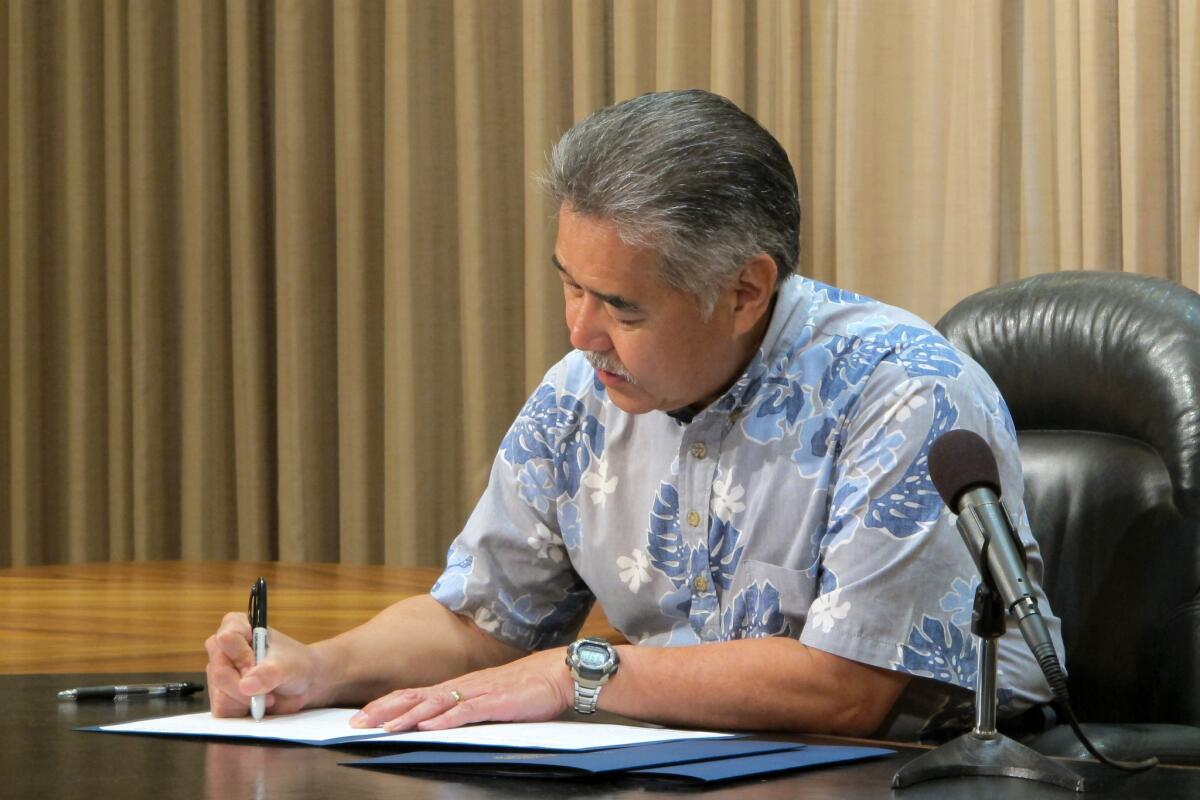Hawaii to start licensing medical marijuana dispensaries

Hawaii Gov. David Ige signs bills Tuesday in Honolulu, including two on medical marijuana.
- Share via
Fifteen years after Hawaii legalized medical marijuana, the state plans to begin licensing pot dispensaries.
Until now, Hawaii’s 13,000 qualified patients had to grow their own marijuana or buy it on the black market.
Gov. David Ige signed the measure Tuesday, along with an accompanying bill that bans discrimination against medical marijuana patients. Both laws went into effect Wednesday, but it will take months for the state to draft rules to implement the licensing law.
“The bill sets a timeline,” Ige in a statement. “We will make a good-faith effort to create a fair process that will help the people most in need.”
The state’s Department of Health will develop administrative rules, including licensing application criteria and regulations, for a medical marijuana dispensary system. Applications will be accepted beginning early next year.
Hawaii will license eight dispensaries, which can begin selling medical marijuana to registered patients by November 2016, according to the Department of Health. Those who apply for licenses must have lived in Hawaii for at least five years and have at least $1 million under their control, according to the law.
Paul Armentan, deputy director of the NORML Foundation, an advocacy group working to legalize marijuana, said the financial qualifications were part of a larger trend that effectively limits licenses to those with access to venture capital.
“Whether doing so will bring about the ideal applicants to serve the patient community remains to be seen,” he said.
But Armentan added that Hawaii’s new laws had closed a legal chasm.
“I think there’s growing recognition among lawmakers that this is just common sense,” he said. “If we can agree that cannabis is therapeutic for patients, it’s only logical that we agree that it’s regulated so that patients can readily access it on a secure and safe environment.”
Carl Bergquist, executive director of the Drug Policy Forum of Hawaii, said the measure was long overdue.
“I think it allows more and more patients to get a not-too-expensive medicine and a very effective one,” Bergquist said.
Medical marijuana is legal in California and 22 other states, as well as the District of Columbia.
Twitter: @natalieschachar
More to Read
Sign up for Essential California
The most important California stories and recommendations in your inbox every morning.
You may occasionally receive promotional content from the Los Angeles Times.










